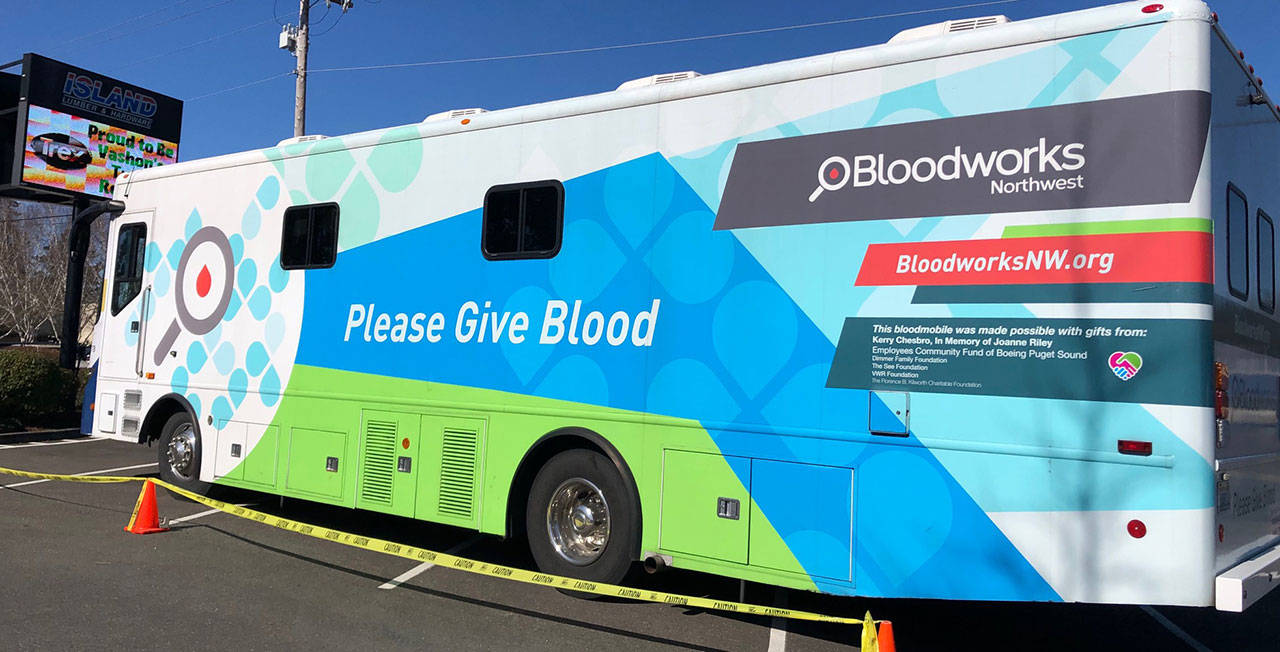On Monday, March 9, the Bloodworks Northwest mobile unit parked outside Island Lumber, and a steady flow of islanders arrived ready to donate blood amid a shortage that the Pacific Northwest is experiencing.
The unit that visited Vashon, employed with people from the Tukwila hub, was supposed to have visited the Amazon headquarters building. But the driver, who decides on where to deploy based on successful drives, made the decision to visit the island after hearing that the large tech company had instructed all employees who can work from home to do so through the rest of the month due to the coronavirus.
Islander Margie Morgan was shopping at Island Lumber when she saw the Bloodworks mobile in the parking lot. Although she has not donated blood for a while, she decided to head over to the van.
“I heard on the radio this morning that there was a slight shortage of blood,” Morgan said. “I thought, ‘I can do this.’”
Bloodworks NW has a total of 49 units: 20 mobile blood units — like the one that visited the island — and 29 visiting services that can set up within a building, according to John Yeager, the spokesperson for Bloodworks NW, in an email to The Beachcomber. Anywhere from 350 to 400 drives per month are held in the Pacific Northwest with 26 people donating per drive, he said.
Yeager also said that 20% of donations come from high school students so school parking lots or cafeterias are frequently visited by the blood services team.
Approximately 1,000 donors are needed each day to visit the blood units to meet demands. Of these, approximately 200 are turned away for reasons such as low iron or high blood pressure.
The entire process, from intake to post-donation recovery — drinking juice and nibbling cookies — lasts about one hour.
Donors can donate red blood cells once every 56 days, according to Yeager. AB negative is the rarest blood type and O positive is the most common. O negative blood is considered the universal donor and AB positive is the universal recipient, according to the Red Cross website.
Every two seconds someone in the United States requires a blood transfusion. One pint per person can provide life-saving needs for up to three people.


